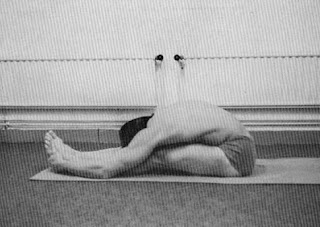Yoga Emotional and Physical Benefits
 Not only does the practice of yoga have wonderful physical benefits, there are also more subtle benefits regarding the emotional and spiritual dimensions. Yoga-based relaxation techniques and stretching are effective because the mind is focused in a meditative way on the movements, skin / muscle sensations and relaxed breathing. A healthy body contributes to a healthy mind. Furthermore, a relaxed body contributes to relaxing the mind and emotions. This combination results in complete, dynamic health.
Not only does the practice of yoga have wonderful physical benefits, there are also more subtle benefits regarding the emotional and spiritual dimensions. Yoga-based relaxation techniques and stretching are effective because the mind is focused in a meditative way on the movements, skin / muscle sensations and relaxed breathing. A healthy body contributes to a healthy mind. Furthermore, a relaxed body contributes to relaxing the mind and emotions. This combination results in complete, dynamic health.Yoga provides powerful skills for stress-management - coping with the stresses or ups and downs of daily life. Accumulated emotional stress can manifest as character armor in the body, which may lead to maladaptive psychological tendencies including anxiety, depression and addictions. In Yoga this armor is called "kleshas". The postures bend, stretch and twist these "kleshas" out of the system, thus releasing emotional blockages.
As the body becomes more flexible so do thinking patterns. As muscles become stronger so does ones inner power, confidence and self-esteem. The progressive relaxation (corpse pose) that concludes most Yoga classes is soothing and calming to the mind. Many people start doing Yoga to release tension from the body and learn to relax. Ultimately, they are surprised as they become more in touch emotionally and spiritually.
The combination of breathing, relaxation and meditation stimulates endorphins, slows down the brain wave activity producing an alpha state and distracts the mind from negative thinking leading to a heightened state of inner peace. Yogic breathing (pranayama) is the main agent for stress-reduction and enhancing spiritual awareness. The Latin word for breath is "spiritus" - respire and aspirate. Many spiritual masters feel that the ultimate is to experience the Spirit or Self. The Self is pure consciousness and a state of transcendent knowledge and bliss. This idea does not have to be understood intellectually.
The simple observation of oneself during yoga can be continued throughout the day. Through this increased awareness one can begin to listen and respond to internal messages. As this awareness grows and enfolds while practicing Yoga, it may begin to permeate other aspects of ones life. One may begin to feel more calm, relaxed, non-judgmental and focused.
Jon Kabat-Zinn, Ph.D., who runs the stress-reduction program at the University of Massachusetts Medical Center, believes that our lives are the sum of our present moments but we are too often distracted to be aware of those moments. He adds that breathing consciously is the best way to learn to pay attention and it is the first step in meditation. As one Yoga student eloquently said, "Yoga brings more balance, peace, relaxation, joy, health, and light into my life. Practicing Yoga means nurturing and loving your Self or your inner Spirit!"
Tania Bloch, M.A. / C.Y.T



Comments